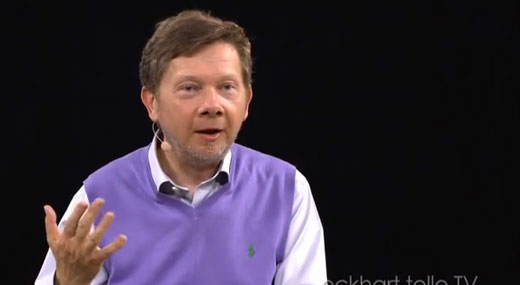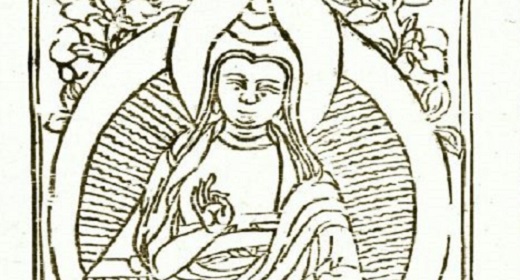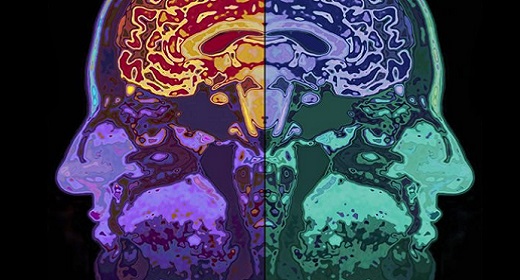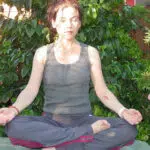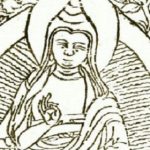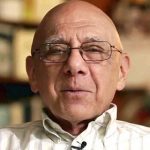Marion Woodman: This article appeared in the November 1995 issue of M.E.N. Magazine
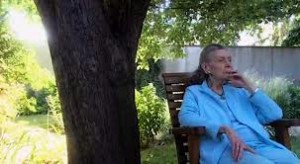 Bert: You have been very inspirational for a lot of women. Your work in Jungian analysis has taken you into themes of women and spirituality. I remember how well you were received at the Women of Wisdom conference here last February. Can you elaborate a bit on how you got into working with women, spirit and soul?
Bert: You have been very inspirational for a lot of women. Your work in Jungian analysis has taken you into themes of women and spirituality. I remember how well you were received at the Women of Wisdom conference here last February. Can you elaborate a bit on how you got into working with women, spirit and soul?
Marion: In my psychoanalytic work, I worked for many years on the rotten foundations, the very dark complexes that can undermine our lives. As people began to come through onto the other side and transform those complexes, huge creative energies began to emerge. That naturally led into soul and spirit.
I think there’s a place where psychology and religion meet, and where religion becomes more essential than psychology. My focus has become the meaning of incarnating soul in body. It simply has grown out of my own work with my analysands. This is where their processes have taken them. It wasn’t anything artificial imposed on top of something.
Bert: More like an organic evolution of your own process.
Marion: That’s right. An organic evolution out of an addiction, I would say. Because the energy that had been located in the addiction, when it was transformed, became very creative and spiritually oriented.
Bert: That reflects the sequence of your books, beginning with The Owl Was a Baker’s Daughter, about anorexia, then Addiction to Perfection.
Marion: And then The Pregnant Virgin, the attempt to find the feminine that is who she is because that’s who she is. Then the growth of the newfound masculine out of the newfound feminine.
Bert: The newfound masculine in women.
Marion: Yes. Mind you, I think that the processes are similar in men and women. I think that the men have to also find their own new masculine, that hasn’t been damaged by the patriarchy. And they certainly also have to find their feminine, free of the old mother that would devour them.
I have to say here that I’m talking about archetypal energies, not personal mother and father. All of us, by the very fact that we’ve been brought up in a patriarchal system, have archaic parental complexes.
Bert: That comes about because our parents were brought up in a patriarchal society.
Marion: And their parents and grandparents, for generations back. We carry those negative energies that would destroy our individuality.
My last book, Leaving My Father’s House, is about the triumph of the positive masculine. The Ravaged Bridegroom is about the wounded masculine.
Bert: Could you talk a bit about the message in Leaving My Father’s House?
Marion: It’s based on a fairy tale. In the story, the heroine is trying to get free from an incestuous relationship with her father. It’s about her having to discover, first, her intellectual powers, and secondly, her instinctual and feminine energies, and finally, her ability to relate to the cosmos. What I was doing in that book was showing how women and men are bound into incestuous relationships, from which they must free themselves.
Bert: You’re talking figuratively, as well as literally, about something that applies to everybody, not only those who have been victims of physically incestuous relationships.
Marion: Yes, incestuous both physically and psychically. We have to bring those bonds to consciousness, and be able to use that energy, because very often when that energy is transformed it becomes immensely creative. That’s because where there has been a psychically incestuous relationship, the unit has had a psychological bonding that can be a source of creative energy. Many women find their creative roots in that relationship with their father, because that relationship gives them a natural access to their own unconscious.
So what the book is about is freeing ourselves from our personal fathers, patriarchal institutions and patriarchal thinking. For example, medicine and law that are based on patriarchal thinking. Not that I’m an anarchist, but I think that a lot of us accept patriarchal thinking and don’t even question it. One goal of the book is to try to get people to think their own thoughts and recognize what they’re living in.
Bert: To take medicine as an example, I take it you’re talking about Western medicine’s reluctance to get into holistic approaches and look at the whole person, rather than the list of symptoms on the chart in front of them.
Marion: That’s right. And not being willing to recognize soul in body, so that they think they can treat the body as a machine, and forget that there is a soul meaning in illness. This isn’t to mock Western medicine, because I wouldn’t be here if it weren’t for the wisdom of Western medicine.
Bert: The scientific and technical wisdom of Western medicine. But as you are going through your own personal journey, clearly you’re dealing with matters of spirit and soul, and doing what Thomas Moore would refer to as care of the soul as a vital part of your healing process.
Marion: That’s right. I know that the healing is in the soul journey. The curing may be in the body, but being cured is not necessarily living a full life. A person can go on breathing without really living, or even die, if he or she is cured, but not healed. Healing is a coming to wholeness.
Bert: What you’re talking about is what the shamans knew all along. They have their own wisdom, even if it didn’t reach the scientific level that ours did. They begin by working with the soul and where the person is.
Marion: Working intuitively with soul.
Bert: Intuitively because intuition is a form of soul-to-soul communication.
Marion: That’s right. I’ve found that to be a profoundly religious experience, to work with that kind of a doctor.
Just to tie it back in, patriarchal thinking would take away the patient’s capacity to think for himself or herself about what’s going on with their own body, or to think about connecting in a dialogue with your own symptom. It would take away what you know instinctively to be your own process, and just make you rely on surgery or radiation or any of the other techniques, with just a thoughtless, “Yes, I’ll do anything you tell me to do.” You may take radiation, in the end, but it’s better to take it through choice, or through an inner dialogue, so that you know what is going on, at both the body level and the soul level.
Bert: There seems to be an element of lack of responsibility for your own life. “Here I am, I’m not connected to my body, you do to me what you think needs to be done.”
Marion: Rape me as you will. That’s what it comes to. And that can happen in the law courts, too.
Bert: Your work, then, on the positive and the negative aspects of masculinity has led to your working with men as well as women.
Marion: I’ve always worked with men, but I didn’t write about men because I’m not in a man’s body, and I didn’t feel that I had the ground to write about men. Now I’m starting to write about men’s dreams, but I don’t think it’s possible for a woman to live imaginatively in a man’s body. I can’t imagine myself as the son of a father. I can empathize with it, but I can’t feel it in my muscles.
Bert: So much of what you do connects with the concretization of spirit in body. Bodywork is important in the approach that you take.
Marion: That’s right. It’s not so much the concretization of spirit as it is the permeation of spirit into matter, so that matter becomes spirit. I think that our culture is buried in concretization. What we need is to be able to fly a bit.
Bert: Now you have linked up with Robert Bly. Is that your first experience in working with a man in mixed groups?
Marion: No, I have worked with other men in the past. What is unique about my work with Robert is that we have worked out a way of working separately with the women and the men, then bringing the two groups together. I find it extremely interesting-great fun.
Bert: How did you start to work with Robert?
Marion: He asked me to come to a Great Mother conference, I think in 1986. He had heard that I had a similar kind of energy. We had a wonderful time with the group at that conference. His thinking, and the thinking of the other men at the conference, opened my mind to men’s position in the society. I think I helped open up his mind to women and their plight.
We have grown over the last nine years. Our work has changed. Every conference that we go to is a different conference, because we are in different places and men and women are in different places. There’s a whole lot more consciousness in groups now.
Bert: What is it like to work with Robert?
Marion: I find it very adventurous. He’s extremely creative. He is, first of all, a poet. He brings in poetry, music and story every time a situation gets tense, where I would tend to hold the tension and just keep going with the anxiety of the moment. His poetry and stories tend to break the tension.
Bert: Or move it to a new level.
Marion: Right. I really value that. Now I find I do it myself. It acts as a transformer of the energy of the group.
When we tell the stories, we know the plot and the details very well, but we never know how the dialogue is going to go or what the other is going to say next. So we are totally spontaneous.
Bert: One of the most moving moments in the Applewood video series, On Men and Women, was when you realized that you had lost the chance to grab the Firebird.
Marion: That is one of the big things about working with Robert. Both of us have total concentration. At some point at every conference, that archetypal energy comes bursting through. In that particular series, it was loss of creative energy that swamped me and knocked me to the ground. This raw archetypal energy manifests itself at every conference. It’s very exciting to jump on the swing and not know where it’s going to go, and just hope that there will be somebody there to fly with you.
The other thing I find is that it brings me right to the edge of where I’m working. I think that Robert also feels he’s working at the edge, and I think this is what makes it exciting for the group, too.
Bert: Because you build a safe container, then find a way to take the participants to the edge of where they are.
Marion: That’s right. And neither one of us is afraid to go to that edge.
Bert: I think what is most inspiring about that is that because you’re not afraid to go to the edge, the participants aren’t afraid to go there.
What would you say the results have been after the Applewood video series?
Marion: That’s hard for me to gauge. I haven’t been out in the world much since they’ve come out. In the few places I have been, I’ve found that the consciousness that comes out of having “wakened up,” as the story in that series talked about, has led to a much broader range of questions, more spontaneity in what people are willing to say, and an expansion in how willing they are to dare. The other thing I’ve seen is a higher level of forgiveness in the group, in terms of recognizing each other’s humanity and the humanity of their parents-that we’re all human beings and we’re nobody’s gods. There’s a container of love within the group that doesn’t have to be built the way it used to have to be built.
Bert: The people come in more open and trusting.
Marion: Yes. Mind you, they have come to know us from watching the tapes, so there’s a totally different feeling. I know when I went to Seattle last February for the Women of Wisdom conference, I was so overwhelmed and speechless by the welcome I received from the group in the church that night. I said to someone afterwards, “Where did this come from?” They replied, “From watching the tapes.” I realized then that they felt they knew me. I heard about the Seattle M.E.N. small groups that have been meeting around the tapes all winter.
I think the only way to watch these tapes is to bring a few people together who are really committed to watching the innuendos of what’s going on in them. They showed them on TV in Canada, not too successfully, because people were ironing, or flicking back and forth to the football game, or doing something else. Unless you’re right there, with the innuendos of what’s happening, you just don’t get anything new out of the tapes.
In a group, people see and hear different things, and then they share that. People also tell me that when they see the tapes again two or three years later, it’s a totally different experience because the symbols work at different levels. The symbols work at the level you’re at. You can see them first at one level, then when you come back two or three years later you see totally different things.
Bert: Now we have a group of people out here who have seen the tapes. What do you think might happen when they come to the workshop that you and Robert are doing for us in November?
Marion: I think it will be dynamite. We have done that before, and we begin where the tapes end. You see, the last half of that story is not dealt with in depth in the tapes. There simply was not time. There was an immense exhaustion in the group. The tapes were done in only two days, in very difficult circumstances. The heat was tremendous-it must have been over 100 degrees where we were working. There was no air conditioning; we couldn’t have fans on because of the noise. We worked steadily Friday night, all day Saturday, Saturday night, and all day Sunday. The discussion of several huge parts of the story simply wasn’t done.
If people have really done their work with the tapes, as far as they have gone, then we go immediately to the next level of the story, which comes in the second half. Then it’s just dynamic, because they’re ready for it.
If they haven’t done the first part of the story they needn’t worry, because we’ll obviously work on that as well.
But here again, it’s a matter of where you are. You have eyes and ears to hear the soul at the level you’re at. In the 23rd Psalm, a five-year-old can say, “The Lord is my shepherd; I shall not want,” and understand the glory of being a little lamb with the shepherd. An 85-year-old will hear that with a completely different ear. I would think that death would be a huge part of it, and the faith that when I go out into the darkness of death there is a shepherd who will take care of me, his little lamb. That is huge when you’re facing death. But if you’re coming at that with a lifetime of faith, the resonance is total. The whole being is involved in it. A little child’s whole being might be involved in it, too, but he doesn’t have the consciousness around it. The child has the lower innocence. The old man has the higher innocence, the conscious innocence.
Bert: You just keyed in on something that is important, too-talking about being there with your whole person. I suppose that would be one of the major differences between watching the tape in a group and being there in the group, experiencing you and Robert in person. I imagine it would be hard to be at the seminar in person without total involvement of body and soul.
Marion: Oh, yes. Being there in person, you are totally there. Not knowing what’s going to happen next gives it an edge. And part of it can be your question that throws it into a different edge. We really encourage people to be spontaneous. Speak out. What’s your problem? Shall we work with ritual here, shall we separate the men and the women? What shall we do? There’s a sense in which the group makes their own conference. By their questions and their emotional responses, we decide whether we will use ritual, or exercises, or bodywork, to work our way through things that come up.
Bert: Those are intuitive decisions that you reach, because your souls are connecting with the souls of the participants.
Marion: That’s right. And we leave lots of room for quietness. We do soulwork, like drawing. I always do some bodywork with women. Robert also works at a visceral level with the men. And when we bring the groups together, it’s always very moving. It’s different in every group.
Bert: What we’ve been trying to do in this interview, in one sense, is to prepare the people who are coming to the seminar. But I guess the only preparation one can do is to come, to be open, and to be willing to be there fully.
Marion: To come with a sense of expectancy.
Bert: Pregnant expectancy.
Marion: That’s right. To be open to the spontaneity. No fear. Robert and I have deepest respect for the soul, and the mystery of the soul. Nobody is ever exposed if they don’t wish to be.
The only other thing I would say is that fairy tales are soul stories. They are just as relevant now as when they were told centuries ago. In that way, they’re like Bible stories. The story of the maiden czar and the young man who goes to sleep [the story used in the videotape series, On Men and Women] is even more relevant to the culture, as it moves deeper into technology, than it was five years ago. People may say the story is old-fashioned now. Our situation in terms of people putting pins into themselves to put themselves to sleep and refusing to wake up is one of the biggest issues in trying to save our civilization.
People may be unable to cope with the anxiety, the growing fear in the streets, the fear in the home, and the values that are being wiped out every day. More and more people are questioning the law system as a result of the O.J. Simpson trial. They’re questioning the values they live by. Of course, that drives them deeper into addiction, to opt out of the whole thing. That’s putting in the pin. I’ll just go to sleep and forget the whole mess. I can’t deal with it.
Bert: And when I wake up, it will all be solved.
Marion: Yes. This conference is about taking the pin out, keeping our eyes open, and dealing with the pain. And the joy of living in this century now. And developing the eyes and ears to be able to live happily. This happens to be when we’re on the planet, so we just have to make the very most of it while we’re here and live it to the fullest.
How to do that, and how to develop our own antennae to do that, is a very practical question. That’s what Robert and I are about. That’s why we have the music, the dancing, the drawing, and sometimes the mud-sculpting-to let people experience the joy of their own creativity.


